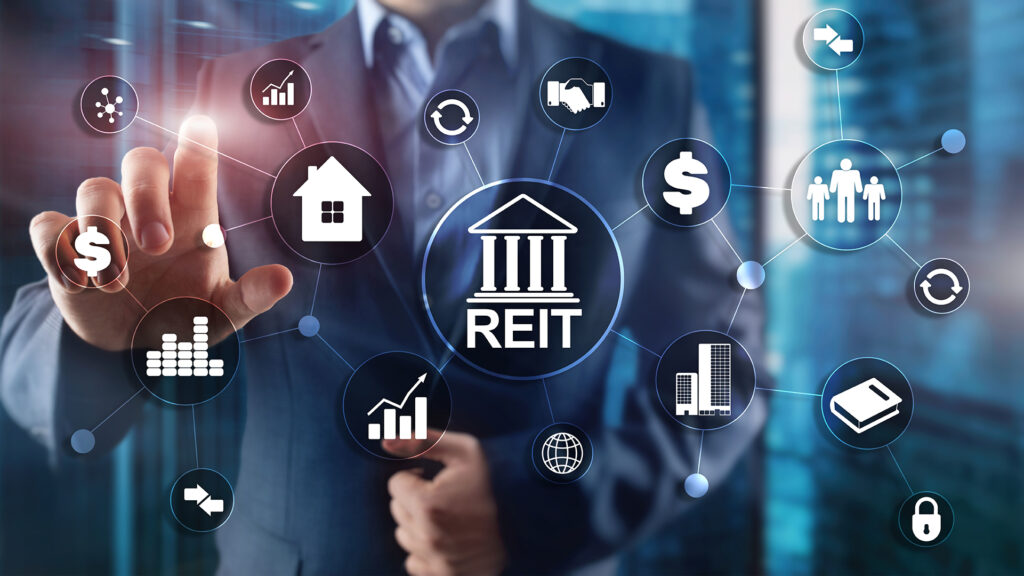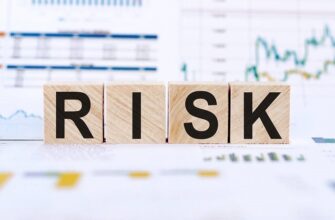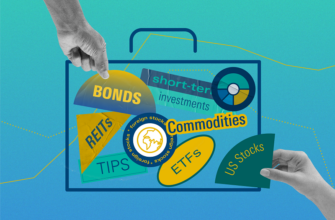Some economic categories are familiar and understandable to the majority of adults. For example – deposits, loans, Bank cards. Most people use them without training. However, self-investment requires some knowledge.
This text is written to give a General idea of the options available to the average citizen of private investment. Some things we will intentionally simplify, everyday descriptions convey the essence faster than scientific terms.
✔ Let’s define the terms
How to define an investment in simple words? You can do this:
- An investment is an investment of money or other valuable assets in a project to make a profit.
- The investor is the owner of these assets and the recipient of the profit from them.
- The return on investment is always linked to the investment. And the investor’s own work and other efforts are useful, but not obligatory moments.

In Economics, investments are described more complex and stricter, and lawyers have their own definitions. But for practice, this is not particularly important. If some investment brings income – let’s call it an investment without looking at the theory.
✔ What investments are available to the average citizen?
Now there are many times more types of investments than 20-30 years ago. We will not build a system out of them, but simply list the options available to the average layman and briefly explain what we are talking about:
- Bank deposits – well-known deposits in many variations;
- bonds – purchase of debt receipts of States, banks and some enterprises;
- shares – purchase of securities that give the right to a share of ownership in the company and in its income;
buying a share in a business entity is essentially like buying shares;
- private loan with remuneration – when one individual lends to another with the condition of repayment of a larger amount;
buying a foreign currency is a controversial option that becomes an investment if the purchased currency increases in value relative to other currencies;
buying gold and other precious metals in bullion, as well as certified diamonds-becomes an investment when the price increases;
- the purchase of Antiques, art objects, rarities, etc. – is an investment for those who know how to sell all this for more than the original price;
contribution to your own business is relevant for those engaged in business; this includes spending on fast Internet for freelancers, buying a cow for selling milk, or buying a pair of purebred dogs for selling puppies; the main condition is that the money invested increases future income;
- acquisition of rights and intangible assets – from copyrights and patents, to permits for individual services to the public;
- investing money in investment funds, etc. – nothing is bought directly here, money is entrusted to a professional investor who invests it with a benefit for the owner, this is also called portfolio investments;
trust management-in fact, it is similar to investment funds, but with a different design;
investment deposits in banks are a cross between an ordinary deposit and an investment in an investment Fund, part of the money remains on deposit, the other part is invested with the help of the Bank;
- trading on exchanges – all types of income – generating operations for own funds with exchange-traded instruments: purchase and sale of shares, bonds, currencies and other assets;
- non-exchange transactions – transactions with various types of financial instruments: currencies, rights, etc. outside of exchanges, more often via the Internet: Forex, binary options;
- foreign investment – refers to transactions with financial instruments in the markets of other countries;
- cryptocurrencies – generation, sale, purchase and other operations with virtual cash;
- venture investments – investments in an undeveloped, promising business (in startups), either to become its co-owner (shareholder), or to receive a pre-agreed income when the project starts working and becomes profitable; this category includes more: IPO – the initial purchase of new shares, often at a low price; and ICO-the initial purchase of cryptocurrencies;
- investment in real estate – purchase of apartments, houses, cottages, etc. as a long-term investment, for rent or for sale after reconstruction and repair;
buying any other valuables for sale at a higher price-recall that speculation itself is no longer prohibited.
Now let’s talk about what the investor’s income is related to.

✔ Return on investment
What does the return on investment depend on?
Profit, return on investment always depends on three mandatory factors:
- the amount (value) of the investment;
- the risk of losing profit and the investment itself;
- knowledge and qualifications of the investor, or those who represent him.
All other aspects are either complementary or useful, but optional.
It is probably not necessary to explain why the amount affects the profit. Money – and other asset are the equivalents of past labor that continue to work in a new project.
The risks are a little more complicated. Because the income that investors are promised is inversely proportional to the willingness to invest. Those who want to earn without risk are always available. Accordingly, they are offered the minimum for which they are ready to part with money for a while.
Anything that exceeds the income from a safe investment is a risk fee.

✔ For this reason:
- interest on Bank deposits (their return under certain conditions is guaranteed by the state) is lower than interest on bonds (they are guaranteed only by the bond Issuer);
- the less stable the currency – the higher the interest on deposits and bonds in it;
- independent purchase of shares and other financial assets is more profitable, but risky, than investing in an Investment Fund or trust management;
- loans without collateral are issued at a higher interest rate than loans with collateral;
- investing in real estate is usually more reliable than buying cryptocurrency, etc.
If someone promises a high income without risk, ask – why are they looking for your money, and do not take a loan from the Bank at a lower interest rate?
The link between qualification and profit is even more complicated.
Why? Because an experienced investor earns more in risky projects.
It doesn’t matter how much you know about the security of a Bank Deposit or government currency bonds. The percentage will be the same in all cases.
But with new stocks, cryptocurrencies and other risky assets, the situation is fundamentally different. Its best to find those who know in advance of what and how to buy. Everyone else can only randomly win to lose in the next stage.

A novice investor should first evaluate not the asset, but their capabilities.
Now we will divide the mass of options into categories based on a combination of real criteria: the amount of investment, acceptable risk, qualification and readiness for entrepreneurship.
Investments for beginners from 100 to 5 thousand dollars
Those who have little experience, less than 5 thousand dollars and have no desire to risk them, the choice is relatively small. However, earnings, even if small, are quite affordable.
✔ Bank deposits
With falling rates, not all deposits can be called investments, but only if they accrue some interest income. It is desirable that this income exceeds the inflation of the Deposit currency. And we will keep in mind that now you can open a Deposit online in a foreign Bank, where the rates are higher. However, it is worth inquiring about possible restrictions and taxation of such deposits.
✔ Bonds
Bonds offer about the same opportunities as deposits. However, the return of deposits is to a certain extent provided by the state, bonds are not. Government bonds are considered quite reliable, but the earnings on interest on them are not much higher than the interest on the Deposit, i.e. sometimes it is not at all. Bonds of banks and enterprises are more profitable at interest rates, but they are less trusted.

✔ Precious metals
For long-term, decades-long investments, high value metals are suitable, but for quick exchange they are unprofitable, because the difference in purchase and sale prices is large.
In addition, the price of precious metals depends on world prices.
✔ Investing in your own business
Investing small amounts in your own business is difficult to discuss. Someone will be able to get, for example, a massage therapist’s certificate for a small amount of money and earn money on it, someone will not return the money spent. But with a serious approach, there are chances.
For those who have less than 1 thousand dollars, it is better to think not about investments, but about profitable savings options. Taking into account inflation, the risk-free income is usually 1%-2%, i.e. $ 10-20 from a thousand.
From $ 100 to $ 5 thousand. Risky investments
For such gambling investors with little money in the network there are a lot of advertised options:
- binary options;
- earnings on Forex under someone else’s leadership;
- buying cryptocurrencies;
- purchase of tokens;
- investments in someone else’s business without guarantees, etc.
For the sake of justice, we will say that serious investors are also engaged in all this. But, the probability of earning from an untrained person is about like winning in the lottery.
A useful tip – when you manage to earn money in this way, try to withdraw money back. If this is a problem, you probably don’t have any money.

Conservative investments from 50 thousand to 100 thousand dollars
From 50-100 thousand dollars. Conservative investment options
Oddly enough, large investments are more reliable than small ones. Because:
- fans of other people’s money understand that fraud for a large amount is more dangerous, and is unlikely to be ignored;
- a large investor is able to use the advice of professionals.
If the amount is large enough, but you do not want to risk it at all, then you can choose:
- Government Bonds: Investing in government bonds is considered a conservative option as it involves lending money to the government in exchange for periodic interest payments and the return of the principal amount at maturity. Government bonds are generally considered low-risk investments, especially those issued by stable and creditworthy countries.
- Certificates of Deposit (CDs): CDs are time deposits offered by banks and credit unions. They typically offer fixed interest rates over a specific term, ranging from a few months to several years. CDs are considered low-risk investments because they are insured by the government up to a certain amount, such as the Federal Deposit Insurance Corporation (FDIC) in the United States.
- Blue-Chip Stocks: Investing in well-established, financially stable companies with a long history of reliable performance can be a conservative option. Blue-chip stocks are typically shares of large, reputable companies that have a proven track record of generating consistent profits and paying dividends. While stocks carry some level of risk, blue-chip companies are generally considered more stable and less volatile compared to smaller, riskier stocks.
- Mutual Funds: Mutual funds pool money from multiple investors to invest in a diversified portfolio of stocks, bonds, or other assets. Conservative mutual funds focus on more stable investments, such as high-quality bonds and large-cap stocks. By investing in a professionally managed mutual fund, you can benefit from the expertise of fund managers who make investment decisions on behalf of the investors.
- Real Estate Investment Trusts (REITs): REITs are companies that own, operate, or finance income-generating real estate properties. Investing in REITs can be a conservative option as they offer the opportunity to earn regular income through rental payments and potentially benefit from property appreciation over time. REITs are required to distribute a significant portion of their taxable income to shareholders in the form of dividends, making them attractive for income-focused investors.

Remember, even conservative investments carry some level of risk, and it’s essential to carefully evaluate your investment goals, risk tolerance, and seek advice from financial professionals before making any investment decisions.








